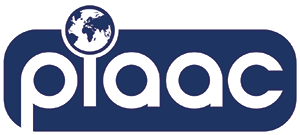Cycle II of the PIAAC survey was launched in 2018 with the participation of over 30 countries worldwide, including Italy.
Data for the main survey will be collected between September 2022 and March 2023, with the involvement of around 12,000 people. This phase will be preceded by a pilot survey, which will start in April 2021 and end in July2021.
As for Cycle I, the survey entails the administration by an interviewer of a socio-personal questionnaire (Background Questionnaire – BQ) and the performance of cognitive tests, carried out directly by the interviewee.
All survey tools, conceived by the OECD, are translated and adapted to the Italian context by the national team.
The BQ is administered by the interviewer using a tablet. Cognitive tests are carried out on tablets by people with sufficient IT skills or on paper by people with insufficient IT skills. For the Pilot survey, there is no pen-and-paper option.
Through the BQ, information on the social and personal situation, education and training during working life, employment status and professional history, as well as more “personal” aspects, such as social attitudes and family information, is collected. A specific section of the BQ is dedicated to gathering information on the competencies used by people at work.
The cognitive tests of the second cycle, in the Italian version, relate to the domain of, Literacy, Numeracy and Adaptive Problem Solving.
Literacy is the ability to understand and use information from written texts in a variety of contexts to achieve goals and develop knowledge and potential. This is a core requirement for developing higher-order skills and for positive economic and social outcomes. Previous studies have shown reading literacy to be closely linked to positive outcomes at work, to social participation, and to lifelong learning.
Numeracy is the ability to use, apply, interpret, and communicate mathematical information and ideas. It is an essential skill in an age when individuals encounter an increasing amount and wide range of quantitative and mathematical information in their daily lives. Numeracy is a skill parallel to reading literacy, and it is important to assess how these competencies interact, since they are distributed differently across subgroups of the population.
Adaptive Problem Solving refers to the ability to use technology to solve problems and accomplish complex tasks. The assessment explicitly considers individuals’ ability to solve multiple problems in parallel, which requires individuals to manage the order in which a list of problems is approached and to monitor opportunities that arise to solve different problem sets.
For PIAAC Cycle II Italy, together with other countries, has adhered to both the optional Reading and Numeracy Component module and the optional module dedicated to measuring people’s social and emotional skills, included in the BQ.

